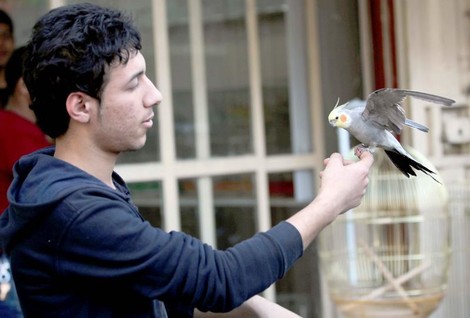Your podcast discovery platform
Curious minds select the most fascinating podcasts from around the world. Discover hand-piqd audio recommendations on your favorite topics.

piqer for: Global finds Globalization and politics Technology and society
Turkish journalist, blogger and media expert. Writes regular columns for The Arab Weekly and contributes to Süddeutsche Zeitung, El Pais and the Guardian. An European Press Prize Laureate for 'excellence in journalism' in 2014, Baydar was awarded the prestigious 'Journalistenpreis' in Germany by Südosteuropa Foundation in February 2018.
Birds Are Abandoning One Of Their Major 'Collective Nests' For Good: Iraq
For centuries, Iraq has been known as a paradise for birds. Its cities, particularly Baghdad, used to be full of bird markets.
The interest to have them as house pets went far beyond that: the country, carving a path in the north-south line, has been a natural passageway for migrating birds. The mountainous areas in the north and east also provided ground for avian raptors: hawks and eagles.
This is no longer the case, it seems: wars and immense social and economic turbulence and instability have paved the way for corruption, which in turn has led to the disappearance of many birds, choosing other geographic areas for their survival.
Houbara bustard was endemic to western Iraq and was protected before the war. Under present conditions, however, there are no restrictions or protections for the birds or fish. The lack of a governmental conservation and water management strategy led to a drought in the Hawizeh Marshes, which hosted many bird species. This affected migratory bird populations that would stop at the marshes.
According to experts, there were more than 400 rare bird species to be found in Iraq. Today, that number is much lower.
Bird breeder Karim al-Khafaji said deteriorating environmental conditions caused the extinction of many rare bird species that used to be found in Baghdad. Following the US occupation of Baghdad and the prevailing atmosphere of insecurity, fear, death and displacement, many people who kept and bred birds left.
It is a sad fact that once external conditions change drastically, it is nearly impossible to return to the old patterns that keep the balance in nature. The changes noted in Iraq are simply signs of a world destabilized by humans—the most hostile species to the very environment that sustains it.
Stay up to date – with a newsletter from your channel on Globalization and politics.
